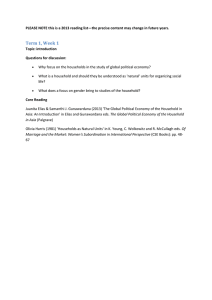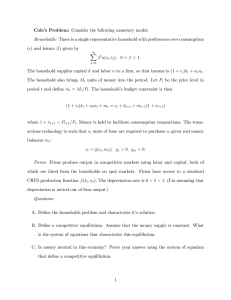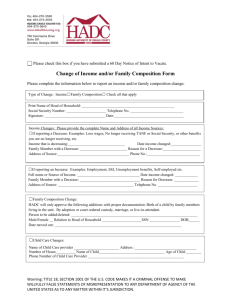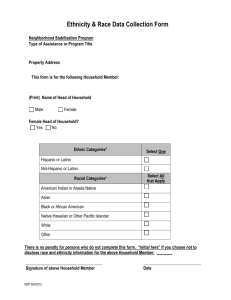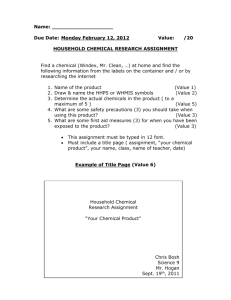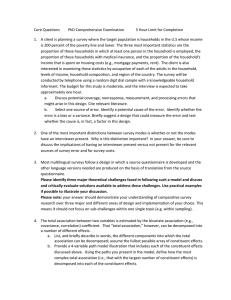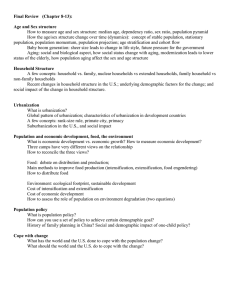Know Your Customer's Income
advertisement
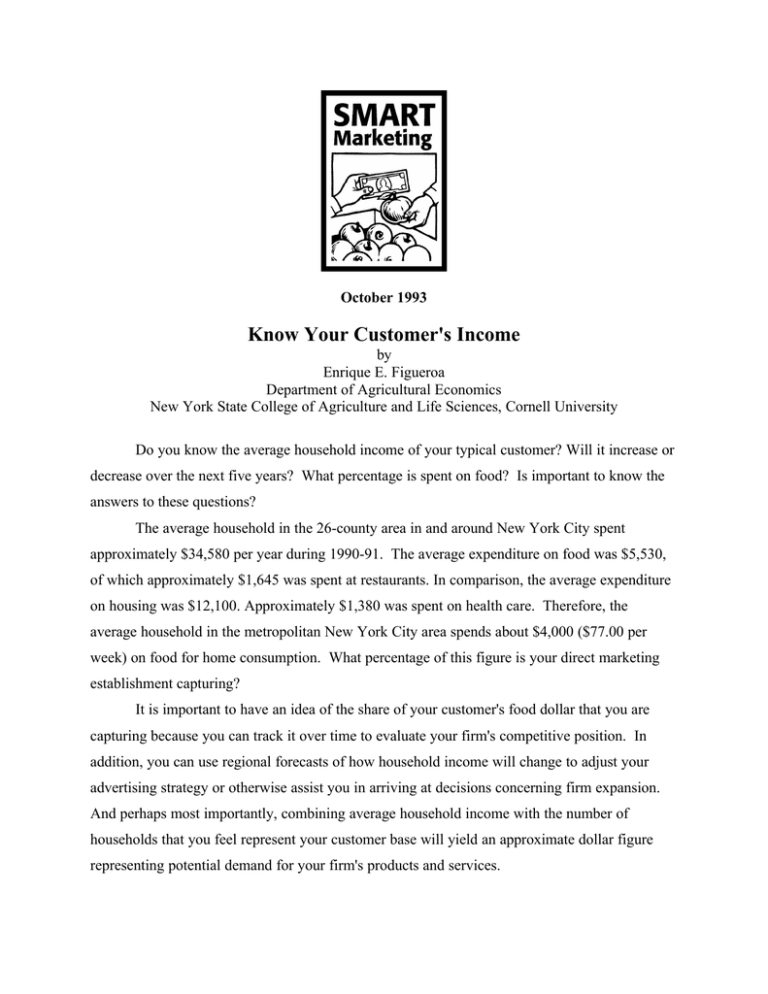
October 1993 Know Your Customer's Income by Enrique E. Figueroa Department of Agricultural Economics New York State College of Agriculture and Life Sciences, Cornell University Do you know the average household income of your typical customer? Will it increase or decrease over the next five years? What percentage is spent on food? Is important to know the answers to these questions? The average household in the 26-county area in and around New York City spent approximately $34,580 per year during 1990-91. The average expenditure on food was $5,530, of which approximately $1,645 was spent at restaurants. In comparison, the average expenditure on housing was $12,100. Approximately $1,380 was spent on health care. Therefore, the average household in the metropolitan New York City area spends about $4,000 ($77.00 per week) on food for home consumption. What percentage of this figure is your direct marketing establishment capturing? It is important to have an idea of the share of your customer's food dollar that you are capturing because you can track it over time to evaluate your firm's competitive position. In addition, you can use regional forecasts of how household income will change to adjust your advertising strategy or otherwise assist you in arriving at decisions concerning firm expansion. And perhaps most importantly, combining average household income with the number of households that you feel represent your customer base will yield an approximate dollar figure representing potential demand for your firm's products and services. Consider an example. Assume your customer base is an area of 2,000 households in the 26-county area. This area represents about $70 million in spending power, $8 million of which is spent on food away from home. If you principally sell produce, then produce roughly represents about 10% of total food sales--$800,000. Though no good regional figures exist for direct marketers' share of total at home produce sales, a conservative assumption is 4% per year. Therefore, if there is only one direct marketer in this hypothetical 2,000 household customer base area, then this marketer should be selling roughly $32,000 per year of produce. If two direct marketers evenly split the households, then each should have $16,000 in produce sales per year. All of you will need to make assumptions about your particular situation--product mix, customer base area, number of weeks open, etc. Once you have done the calculations, then you need to compare the figure to what your actual sales are. How well do you do?
